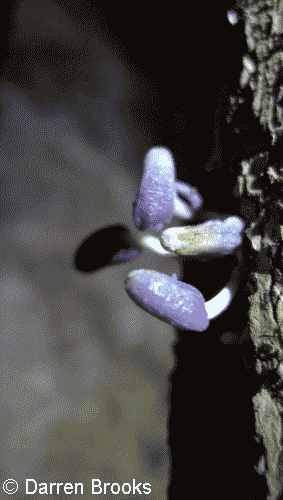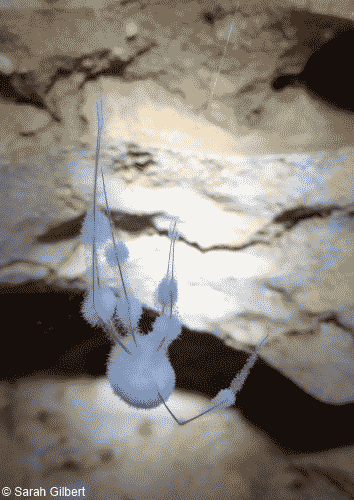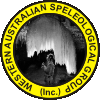Fungi are often found growing on decaying organic matter in caves.

This attractive purple fungus was growing from a dead fig tree root in a cave at the Cape Range. It grew to a length of ?2 cm.

The picture above shows a dead spider with mould growing from its body and joints, photographed in the twilight zone of a cave on the Cape Range.
Mycologist Tom May of the Royal Botanic Gardens, Melbourne, writes of it:
“I cannot be certain of the genus or species without being able to confirm microscopically from spores, but it looks rather like Beauveria bassiana, the Icing Sugar Fungus.
Beauveria is a mould, the asexual stage of various species of the genus Cordyceps. Cordyceps are a pretty amazing group of fungi, which outdo any strange science fiction ideas. Their airborne spores land on an insect, usually a caterpillar or a beetle pupa, invade the living tissue, devour the living host from the inside, then cause the dying creature to move to a good place for the Cordyceps to fruit, and only then kill the host. The Cordyceps then produces a fruiting body which releases spores to carry on the life-cycle.
Cordyceps occur on a wide range of arthropods, usually insects. It is quite likely that similar-looking moulds on different hosts represent different species.
See, for example, https://www.flickr.com/photos/nzwild/5789671790, where something pretty similar on a spider is identified as Beauveria bassiana. The fungus is also growing from the joints in this one.
I’d say Beauveria-like for an identification of this image. You would have to check microscopic features to get any further.”

